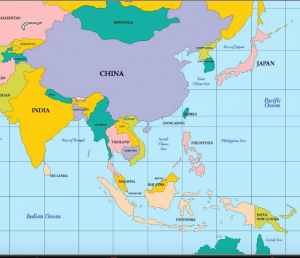
All investors that want to be assured of contractual compliance pay careful attention to assessing risk and reward considerations.
International investors considering the purchase of revenue royalties, an agreed percentage of the royalty issuing company’s defined revenues for an agreed period, need both a means of confirming the immediate knowledge of receipt of revenues and an assured mechanism for the collection of the agreed payments. We have already devised ways that satisfy these needs for royalties issued by companies operating in the U.S.
Companies in Asia are likely to continue to experience fast growth of revenues as well as have a need for increased capital to support their growing operations. For all the reasons previously discussed, royalties are the better way of companies financing their growth, without suffering equity dilution.
Possible solutions include:
Royalty Payment Assurance (RPAC) companies can be established in each country with royalty issuing companies paying a fee for assurance against the risk of the company failing to honor its obligations. The RPAC would need to be an internationally recognized financial institution or government agency. A currency hedge to an agreed currency might also be required. The RPAC would not be in a position to verify revenues, and would only be responsible for assuring the royalty issuing company’s royalty payment obligations. Therefore, a local revenue monitoring strategy will have to be developed, other than merely a required annual audit by an international auditing firm.
International Royalty Income Funds (IRIF) could be created to purchase royalties from companies in Asian countries. The IRIFs would make their own policies and practices and investors would determine the sufficiency of the investor protections accepted by the IRIFs.
These Asian royalty issuing companies could establish subsidiaries in investor satisfactory jurisdictions. The subsidiaries could be a collateralized issuer of royalties on behalf of the parent company.
International financial institutions or their correspondents could be designated as the institution receiving the deposit of revenues with similar royalty payment deductions and transfers being arranged. It is clear that the active participation of an international financial institution will be required to satisfy the needs of international investors.
The World Bank or other quasi governmental agencies could be the operator of an IRIF.
The active involvement of an international accounting and law firm will also be highly desirable in creating both IRIFs and serving royalty issuing companies.
Because financial institutions and their clients require ever increasing amounts of annual income and traditional debt yields are at levels insufficient to meet the income needs of lenders, the low capital risk of IRIFs should result in the ability of international investment bankers to create the necessary funding.
We are here to help.
Arthur Lipper, Chairman
British Far East Holdings Ltd.
chairman@REXRoyalties.com
+1 858 793 7100
© Copyright 2019 British Far East Holdings Ltd. All rights reserved.
Blog Management: Viktor Filiba
termic.publishing@gmail.com
